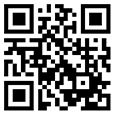0
新航道官方在线客服

阅读量:
1. Someone traveling alone, if hungry, injured, or ill, often had nowhere to turn except to the nearest cabin or settlement.
【译文】单独旅行时,如果挨饿、受伤或生病,通常只能向最近的小屋或村落求助。
【析句】这是一个简单句。Someone是句子的主语,现在分词短语(traveling alone)是其定语;if hungry, injured, or ill实际上是简略的由if引导的状语从句,相当于 if (he was) hungry, injured, or ill,这里作插入成分。
【讲词】turn to意为“转向;变成;求助于;致力于;开始行动”。If you quit dawdling and just turn to, the cleaning will be done in a day.(如果你停止闲逛,马上开始工作,清洁工作就能做完。)He had to turn to his family for financial assistance.(他只得找家人给他提供经济援助。)
2. It was not a matter of choice for the traveler or merely a charitable impulse on the part of the settlers.
【译文】对旅行者来说,这不是一个选择的问题;而对当地居民来说,这也并非是一时的行善冲动。
【析句】句子的主干结构是It was not a matter of choice… or merely a charitable impulse。注意表语由并列的两部分组成,由or来连接。
【讲词】on the part of “在……方面,对……而言”。 This represents some sort of failure on the part of the government.(对于政府来说,这就是某种失败。)Nevertheless, this is not double standard on the part of people.(然而,对人民来说这不是双重标准。)impulse表示“刺激;冲动;推动力”。Respect for the liberty of others is not a natural impulse in most men.(对大多数人来说,尊重他人的自由并不是一种自然的本能。)She bought the dress on impulse.(她一时冲动买了这件衣服。)charitable意为“仁慈的;(为)慈善事业的;宽恕的”。A charitable organization can never inherit from the estate of an individual who passes on without a will.(一个慈善组织永远也不能接受未立遗嘱的人所捐赠的财产。)
